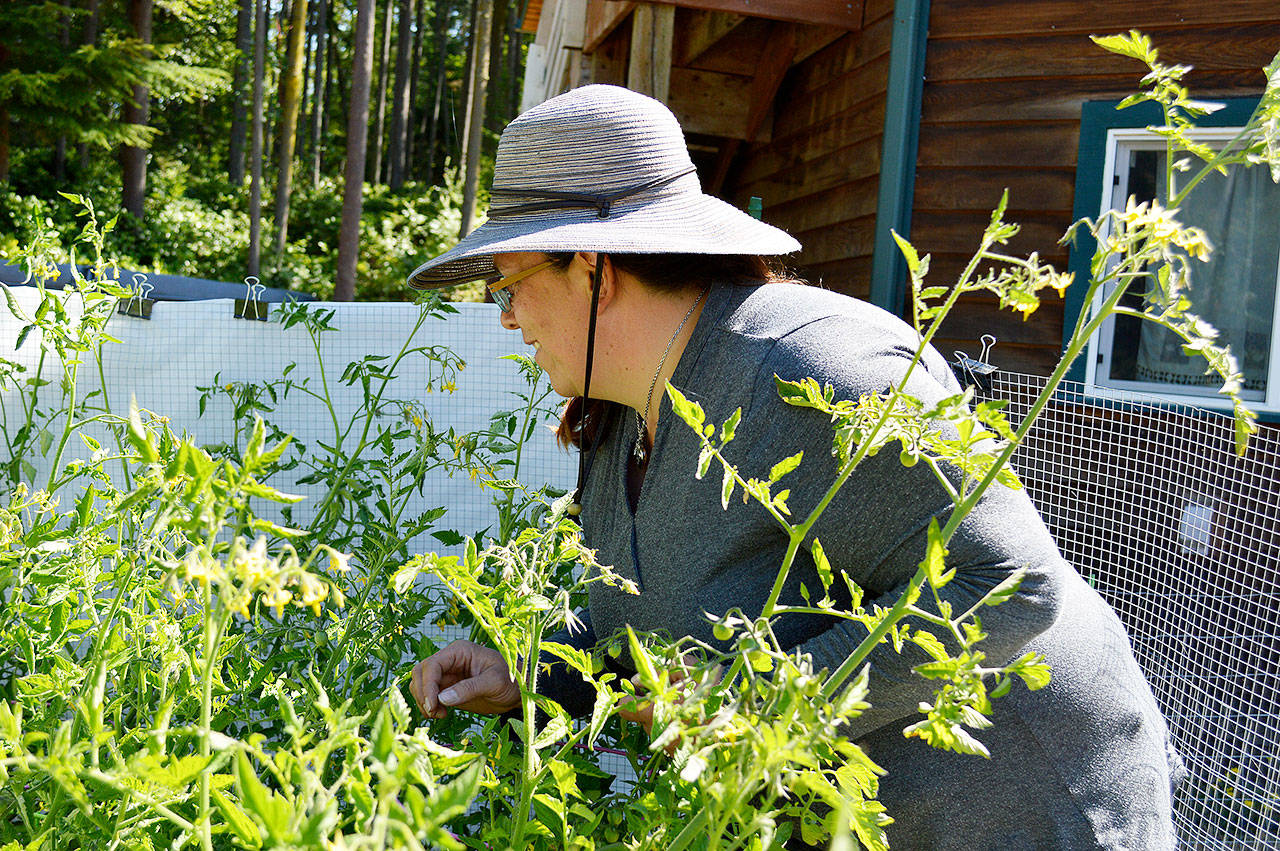Sarah Kirkconnell wants to change what people envision when they hear the word “homesteading.”
“They have this notion of someone out there with a dress and a hoe living off the land,” Kirkconnell said.
The Freeland resident, wearing pants, stood on her 5-1/4-acre property that features technological conveniences like a tractor and chainsaw. She and her husband Kirk are proponents of “modern homesteading,” with the goal of being as self sufficient as possible.
“People think you have to go all in,” she said.
For her, it’s about picking and choosing to learn skills like canning, dehydrating food and making body products in addition to growing produce and herbs. And it isn’t something she wants to do in isolation.
In addition to sharing her tips and experiences on her blog neverfreefarm.com she started the Facebook group Whidbey Island Homesteaders to help create a community of people who are doing or are interested in doing the same thing— or at least sort of the same thing.
“Most people have their own gig that they do,” Kirkconnell said. “… It ends up being a big circle where everybody helps each other out because there’s no competition going on.”
The Kirkconnells moved to the island in February. The couple and their children lived in Maple Valley on one-third of an acre in town limits, where they started an “urban farm” in 2014.
The journey to self-sufficiency and sustainability began with their son’s severe allergies. Sarah Kirkconnell said they found that he was able to eat food that the family grew organically even though he couldn’t eat the same type of foods bought at a grocery store. They started growing more food, and she started making allergen-free soaps, salves, balms and oils.
“And that’s not bad for everybody else either,” she said.
Kirkconnell grew up on North Whidbey and decided to move back to the island to live a quieter, rural lifestyle, Kirkconnell said. The Mutiny Bay property they found has required significant work to transform it into usable farmland, but their goal is to be at full production by next fall.
Kirkconnell envisions adding large rows of strawberries and blueberries; raising chickens, quail and maybe pigs; installing a geothermal-powered greenhouse; putting in bee hives. Their power tools are run by solar-charged batteries and soon they will put in a water-reclamation system.
She works from home, but her husband Kirk Kirkconnell has to split his farm time with his full-time job in the tech industry.
“If he had his dream, it would probably be driving his tractor around for 40 hours a week,” Sarah Kirkconnell said of her husband with a laugh. Her schedule stays full with blogging, writing (she has written seven cookbooks for backpacking) and raising her 8- and 6-year-old sons.
“It’s lots of little frying pans in the fire,” she said.
However, she maintains that once the bigger projects are out of the way, the homesteading part doesn’t have to be a huge time commitment.
It also doesn’t have to be expensive. Kirkconnell pointed to pieces of wood cut down as part of forest management on the property that they used around a raised bed to keep rabbits out of the garden.
“You do it on the cheap with things that you can up-cycle and recycle for other things,” she said.



